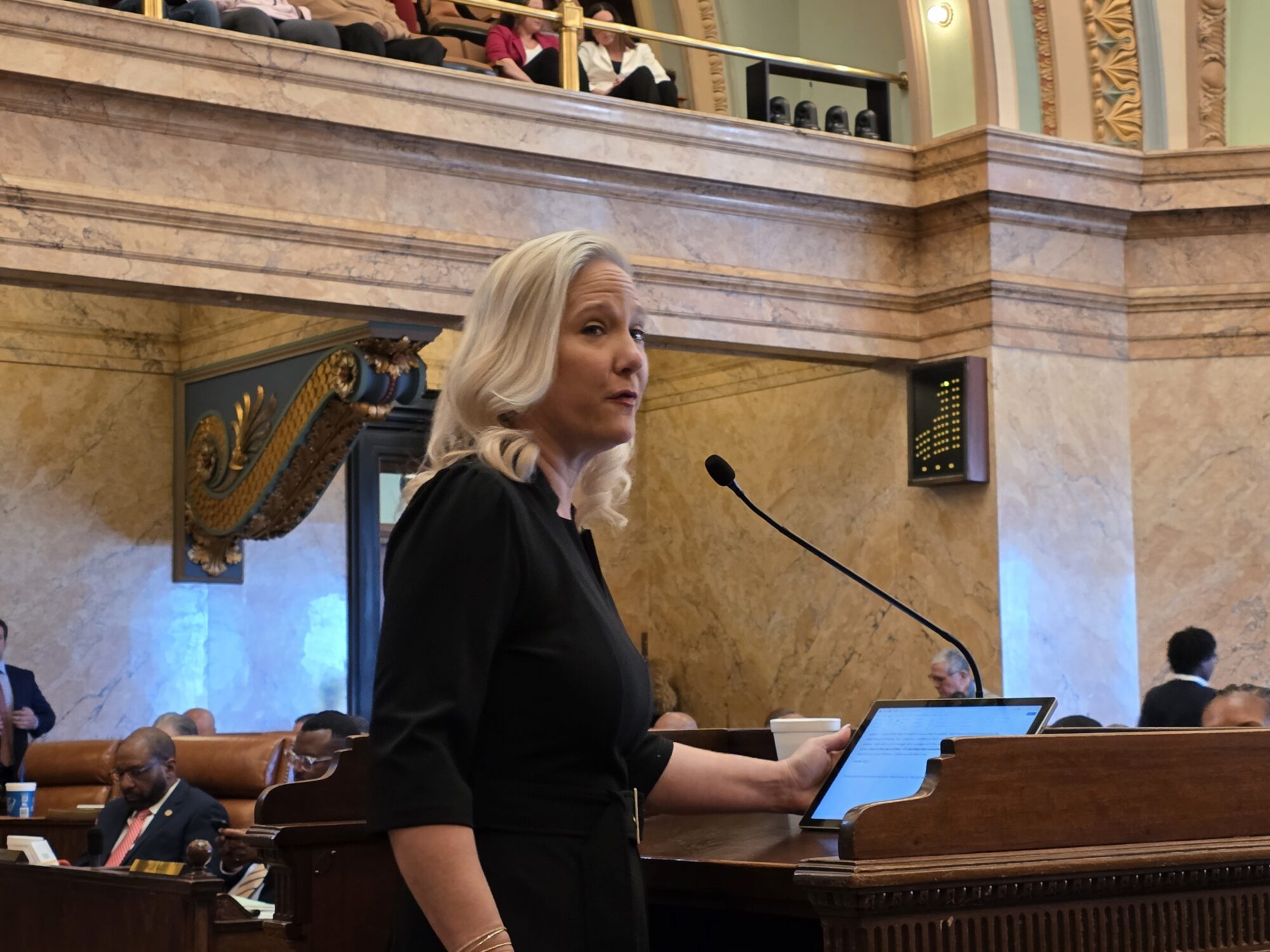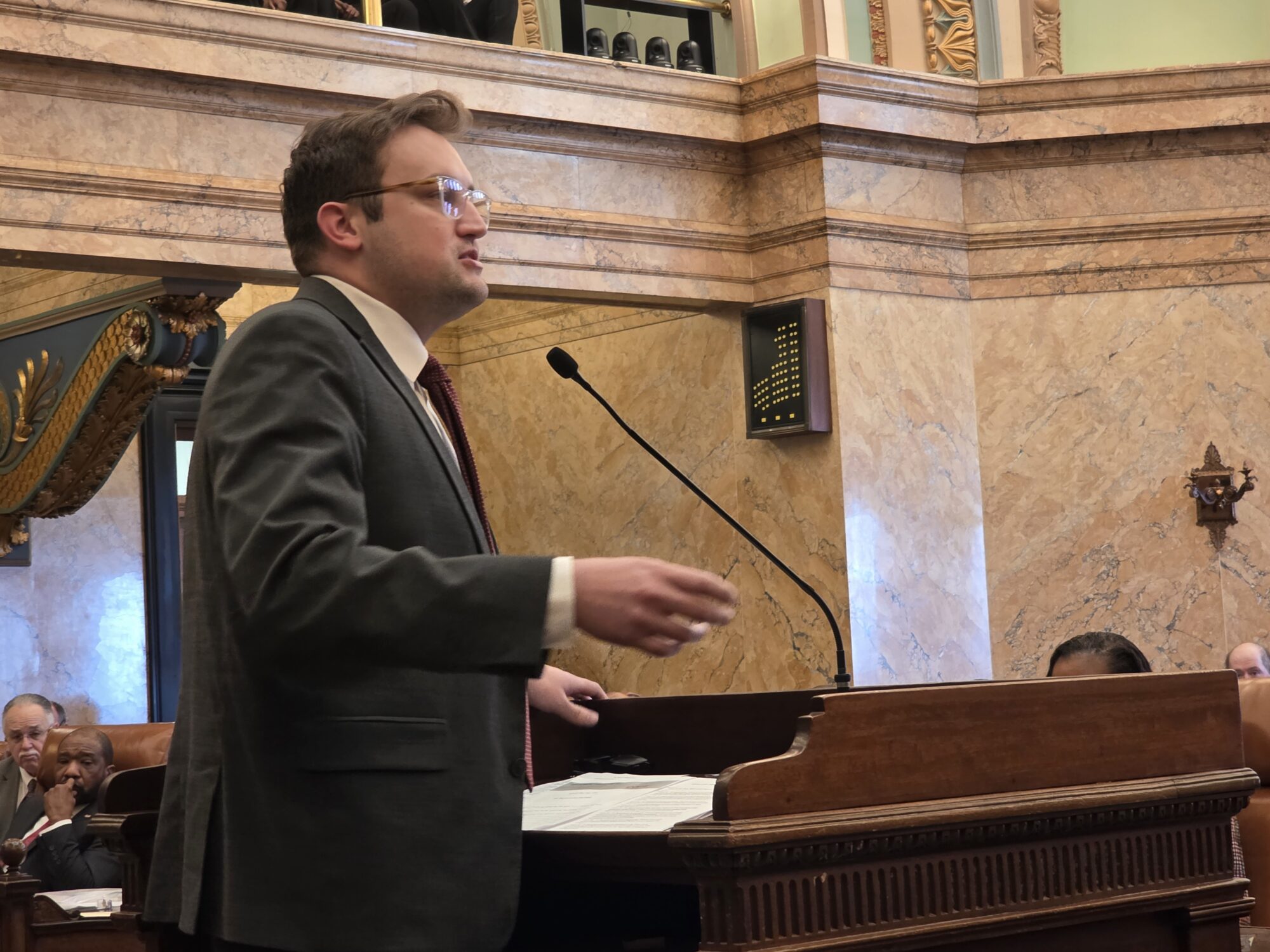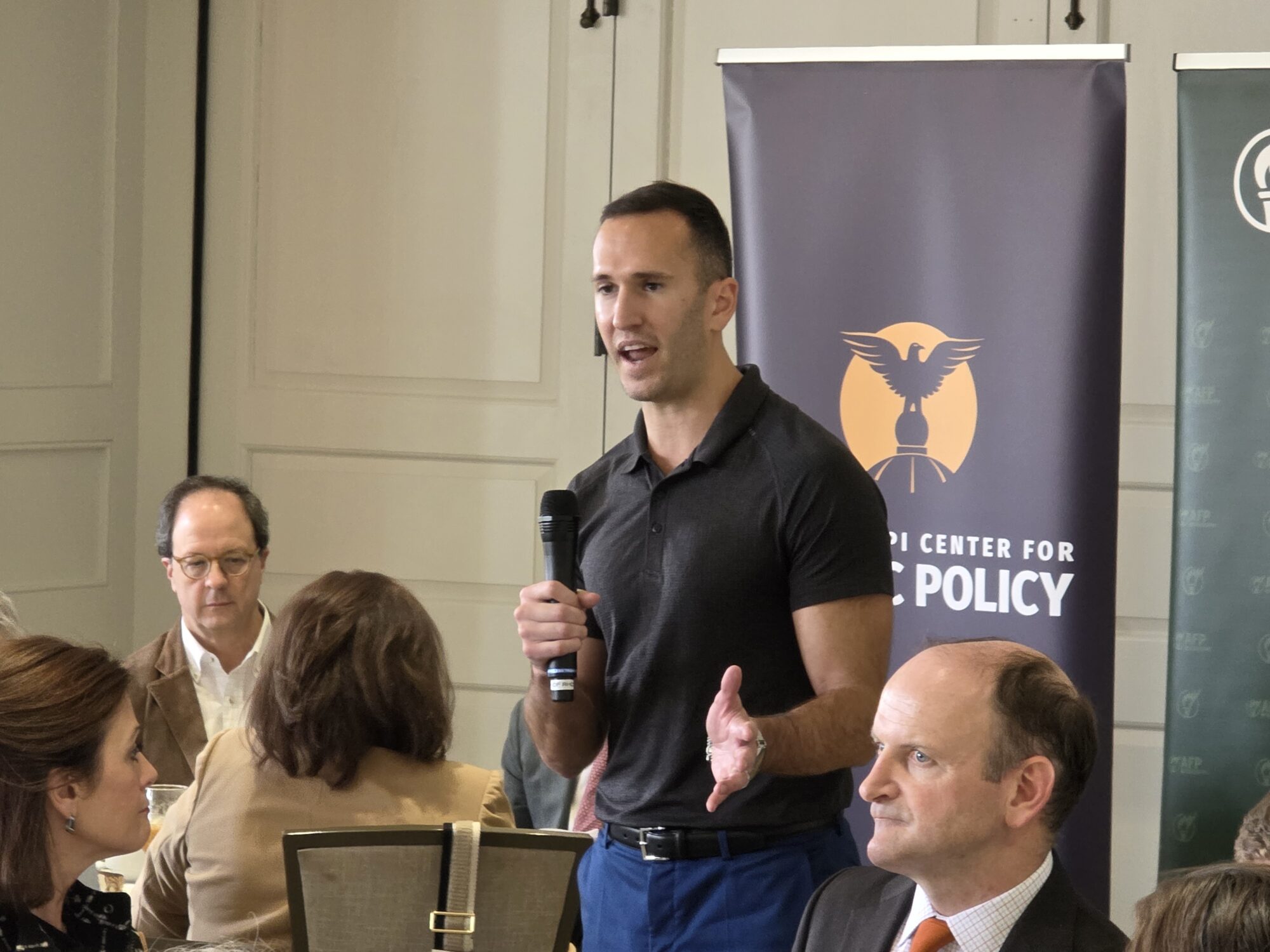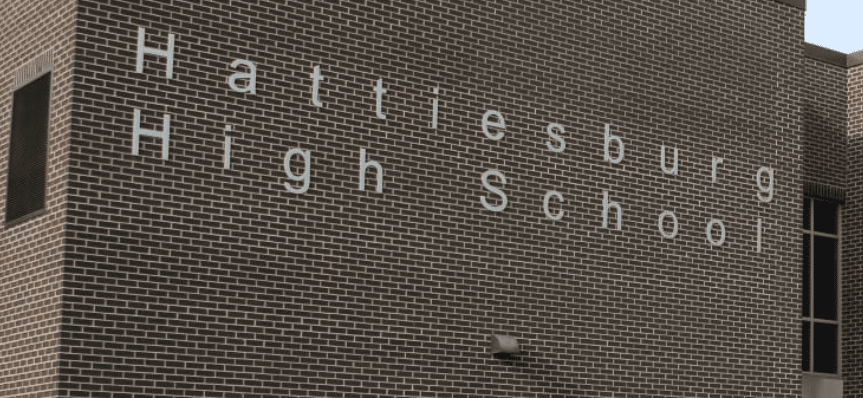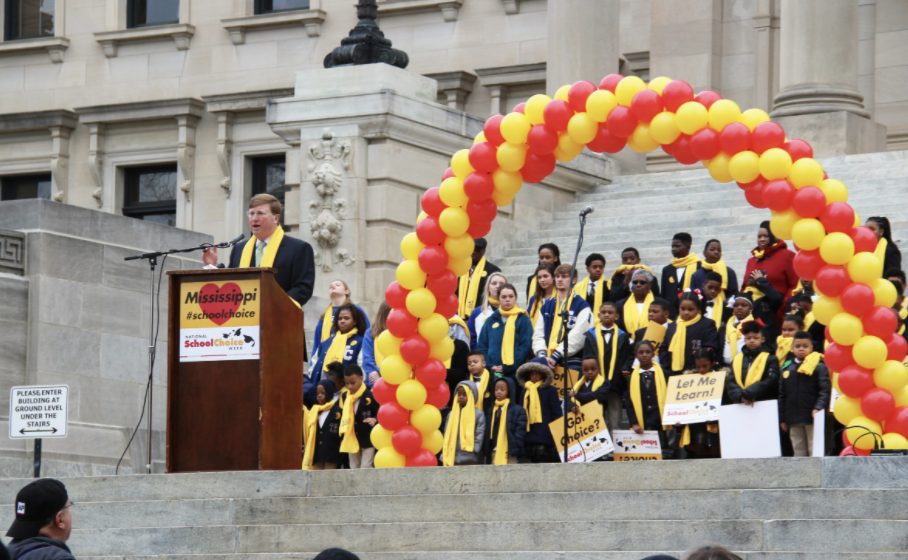
Governor Reeves speaks at a School Choice rally at the Capitol in January 2021.
A slew of statewide elected officials have indicated support for giving parents more options over their children’s education during National School Choice Week, while some lawmakers are unconvinced.
National School Choice Week brings into focus the benefits of providing parents with a choice in how to educate their children. Recognition of the national movement is once again underway in Mississippi, complete with a proclamation signed by Governor Tate Reeves issued earlier this month.
Reeves is not alone. House Speaker Jason White has previously identified as a priority expanding education options available to families. The pair were joined this week – by other statewide elected officials who voiced support for school choice on social media platforms, including Attorney General Lynn Fitch, Auditor Shad White, Secretary of State Michael Watson, Treasurer David McRae, and Commissioner of Agriculture Andy Gipson.
Grant Callen, founder and CEO of Empower Mississippi, has long been an advocate for giving parents more say in their child’s education. He said school choice gives parents options in their child’s education but the options in Mississippi are currently few.
“Our options today have been relatively small – charter schools and two small private school programs,” Callen said.
Yet, proponents have seen a renewed interest in school choice within the Magnolia State, and beyond, as of late.
Efforts to expand school choice, allowing tax dollars to follow the child where they can receive the best education possible, have been a hot topic over the last year. Now, lawmakers are being asked to consider policies to move the conversation forward.
“If you spend any time at the Capitol this session it’s clear there is renewed momentum for it under the dome, and that’s a great thing,” Callen added.
Major improvements have been made in Mississippi’s public schools over the last decade, particularly in elementary literacy and improved graduation rates, but Callen is concerned there are some children still being left behind because their needs are not being met by public schools.
By providing parents and children with a choice in their education, all schools benefit, Callen said. He noted that research has shown that states with school choice, such as Florida, have seen improvements in student achievement across the board when parents are provided educational freedom for their child.
Callen said 27 of 29 gold star studies have found that school choice provides students a way to find the help they need. Low performing students having the ability to move to a setting where their specific needs are met not only benefits the child, but the public school district they moved from as it allows that public school’s total testing score to increase.
That sentiment was included in Governor Reeves’ proclamation issued on January 11, 2024. The proclamation reads, “research demonstrates that providing children with multiple education options can improve academic performance…”
Callen described school choice as being similar to competition in business. When there is more than one type of product, the businesses that offer that product will work to offer a better product to lure in more customers.
But while there are vocal proponents for school choice some lawmakers have concerns about the current lack of oversight and testing in certain educational offerings, namely in private schools. Not having similar standards while accessing public funding is an issue on those lawmakers’ minds.
State Senator David Blount, a Democrat representing Senate District 29, said he estimates that if school choice became part of Mississippi’s education structure, it would cost the state an additional $400 million per year.
Lt. Governor Delbert Hosemann, a Republican, was asked about school choice during a Stennis Capitol Press forum held earlier this month. He said then that a system is currently in place where families who have children with disabilities can receive vouchers to help pay for an effective education that does not involve a public school. However, to expand that program to every family would mean more cost to the state, likely in the hundreds of millions of dollars, Hosemann said.
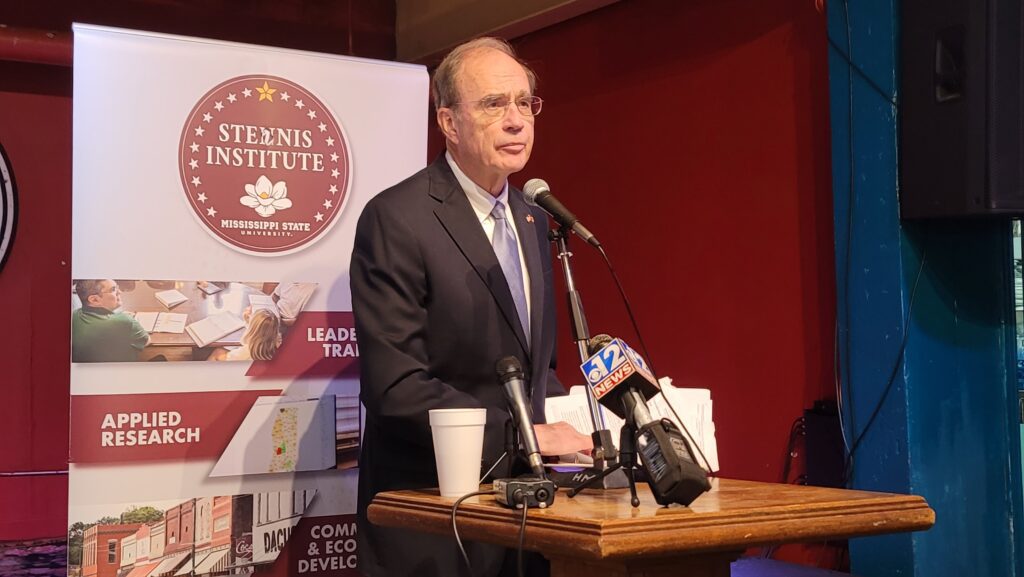
The Lt. Governor used an example of 50,000 families receiving vouchers. At $7,000 per student, Hosemann said it would total an additional $350 million, close to Senator Blount’s estimate. Lt. Governor Hosemann said that level of additional funding has not been accounted for in state budget talks.
A fiscal impact report by EdChoice released in December of last year says that depending on how Mississippi structures the program, it could actually save money. According to the report’s authors this is because allowing the money the state is already spending on current public school enrollees to follow the child to a school of their choice is not a new expenditure. Four scenarios were presented in the analysis.
“If all public schools students in Mississippi are eligible to apply for an education savings account (ESA) that is equal to 100 percent of the statewide per student average of the state portion of Mississippi Adequate Education Program (MAEP) spending, we project that the ESA program would cause a net cost to state taxpayers of $600,050. The accounts would save local taxpayers over $2.3 million. Overall, this proposal would save Mississippi taxpayers approximately $1.76 million in the first year of this ESA program,” proposal #1 in the report reads.
The second proposal in the report states that if the ESA was equal to 90 percent of the state’s per student MAEP funding, the state and local taxpayers would save money.
The third proposal outlines allowing ESAs for all students eligible to enroll in a public school, including those currently attending private schools or who are homeschooled, equal to 100 percent of MAEP funding, it would lead to a net cost to the taxpayers of $74.7 million but save $2.35 million in the first year, equating to a total taxpayer cost in the first year of $72.3 million.
In the fourth proposal, the report states allowing ESAs equal to 90 percent of MAEP funding for all students, including those in private school or homeschool, the net cost would be $67.2 million with a savings of $2.35 million for a total taxpayer cost of $64.8 million in the first year.
Above the funding, there are concerns about how the public money would be used.
Blount said he is concerned that private schools receiving public funds would not have to abide by the same auditing, accountability and testing rigors as public schools.
Additionally, Hosemann said private school officials have also expressed their concerns to him.
“Personally, in my conversations with private schools, they fear that it will come with strings, and they are skeptical,” Hosemann elaborated.
The best way Hosemann feels the state can ensure it is educating children is to not leave students in F rated schools.
Secretary of State Watson posted his support for school choice on X (formerly Twitter) this week.
“Every child deserves the opportunity to receive an education according to his or her learning style. Whether it be public, private, or charter school, parents deserve the right to choose the best path for their children,” Watson said.
Auditor White expressed a similar sentiment on X.
“It’s national school choice week! What a great time to remember that parents deserve the right to send their kids to the school that fits them best. Time for policymakers to empower Mississippi parents!” White posted.
Agriculture Commissioner Gipson also shared his support on the platform.
“Parents like us know our kids better than any government. We should be able to choose the best school for them. I support expanding education options like charter schools and ESAs because all kids deserve an educational setting that works for them. Let’s make it happen in MS!” Gipson wrote.

